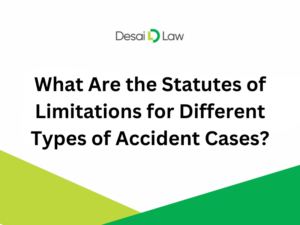Did you recently suffer a loss and find yourself dealing with empty promises from your insurance company? Navigating the complexities of a denied insurance claim can feel like walking a tightrope, especially when the safety net you expect from your provider drops from under you.
If you feel like you’ve been unreasonably or wrongly denied after filing a claim, then you might be dealing with “bad faith” insurance. The term goes beyond a mere lapse in judgment from your insurance company – it’s essentially a breach of trust and a blatant failure to honor the commitment it made to you.
This is the unfortunate reality that policyholders face, and if you’re determined to know your legal options, you’ve come to the right place. In this article, we’ll shed light on the concept and possible avenues you can take so you can get the solutions you deserve.
Understanding Bad Faith Claims Against Insurance Companies
An Insurance Company’s ‘Duty Of Good Faith’
When you enter into a contract, there’s an implied understanding that both parties have entered in good faith and will fairly deal with each other when it comes to their mutual obligations.
This means that each guarantees the faithful fulfillment of the terms of the agreement, especially with insurance policies, since it’s a contract that’s imbued with public interest.
According to Forbes Advisor, insurers have a number of duties to policyholders, which include:
- A duty to investigate a claim properly;
- A duty to defend if a policyholder had liability insurance that covered the claims arising against him;
- A duty to indemnify or pay settlement costs or court-ordered damages when a covered claim is made that the policyholder’s liability insurance covers;
- A duty to settle if a reasonable settlement is on the table and protects the insured from out-of-pocket losses that could result from a lawsuit.
If an insurer unfairly fails to fulfill these obligations, the insurer may be in violation of the duty of good faith and fair dealing. They are said to be acting in bad faith, which can lead to a bad faith insurance claim.
What Is ‘Bad Faith’ In Insurance?
Forbes defines a “bad faith insurance claim” as a claim you make when an insurer does not behave in a fair and appropriate way in processing a valid claim.
There is an expectation that you’ll be properly compensated after a loss, so if an insurer engages in this kind of misconduct, you may be able to recover damages for the physical, emotional, or psychological toll that you unduly suffered.
In some situations, you may be able to obtain additional compensation intended to punish the insurer for its unfair behavior.
Types Of Bad Faith Insurance Practices
You should be aware of the common bad faith tactics of insurance companies so that you can prepare and strategize accordingly. Some examples include:
Delaying The Processing Of Your Claim
Your insurer may unreasonably delay the investigation of your claim before agreeing to pay due compensation. This tactic is usually done for the company to wait out and see if you will give up on pursuing your case.
Generally, states have set a deadline for an insurance company to accept or deny a claim. It can take from fifteen (15) or up to sixty (60) days. In West Virginia, for example, your insurer must establish procedures to commence an investigation of any claim within 15 working days after receipt of the notification of claim (W. Va. Code St. R. § 114-14-6.2).
However, if the insurer needs more than thirty (30) calendar days from the date that a proof of loss from a first-party claimant or notice of claim from a third-party claimant is received to determine whether a claim should be accepted or denied, it shall so notify the claimant in writing within fifteen (15) working days after the thirty-day period expires (W. Va. Code St. R. § 114-14-6.7).
Engaging In Deceptive Or Fraudulent Practices
An insurer could fail to disclose the existence of coverage so they don’t have to pay you. This happens when your insurance company fails to notify you about a deadline for compliance or when it doesn’t provide the necessary documents for you to complete your claim on time.
Failing To Conduct A Complete Investigation
Since every insurance contract has an implied duty of good faith and fair dealing, an insurance company is bound to conduct a thorough and complete investigation of the extent of your claim.
If it merely takes into account hearsay or unreliable evidence about your loss, then it would constitute a breach of that duty.
Failing To Provide A Reasonable Explanation For Your Claim’s Denial
Aside from being owed a proper investigation, an insurer must also give you a detailed and reasonable explanation if they decide to deny your claim. You shouldn’t be kept in the dark or left confused about your coverage.
It must state the facts, the basis, and the precedents that it relied on to reach the said decision, and it must do so within the period provided in your policy.
Making Threatening Statements Against The Insured
An insurance company should cooperate with policyholders or third-party claimants to efficiently resolve your claim. They are not allowed to threaten, intimidate, or berate you.
If you’ve experienced any kind of harsh treatment, you should report them to your state’s insurance board or call your lawyer immediately.
Misrepresenting the Law or Policy Language
Your insurance provider must also interpret your policy’s language truthfully and lawfully. If they misrepresent your coverage or deliberately misinterpret the clauses for their benefit, they are liable for fraudulent practices.
Offering Less Money Than A Claim Is Worth (Underpaying Or Undervaluing)
When your insured property suffers damage, then you would expect that you could recover or pay off the repair quotes that you received or at least hope that it would be within that range.
However, sometimes, insurance companies would offer to pay half of the amount or lower despite higher coverage under your policy.
Lowballing, underpaying or undervaluing your claim is another tactic done in bad faith since insurance companies are not allowed to pay significantly less than what you deserve to keep the money for themselves.
Refusing To Pay A Valid Claim
If you suffered a loss that falls under your coverage, then your insurance company has an obligation to compensate you for the damage you sustained upon proper compliance with your policy’s requirements. Once they unjustly refuse or deny their liability, even after fulfilling the latter, you may have a case against them for bad faith.
Refusing To Settle A Case When A Policyholder Is At Fault
Lastly, there’s also bad faith when your insurance company refuses to settle a case when it’s clear a policyholder is at fault. After completing the required forms and submitting the necessary evidence, the insurer should pay out a third-party claimant.
If it doesn’t, it would leave the policyholder vulnerable to a lawsuit that could result in an award that might exceed the policy’s limits.
What Can You Recover From Bad Faith Lawsuits?
If you can successfully make a bad faith insurance claim against your insurer, you should be entitled to compensation. Forbes advised that the specifics of your damage award depend on many factors, including state laws, common law rules in your jurisdiction, the nature of the insurer’s misconduct and the actual types of losses you experienced.
Generally, you may be entitled to compensation for the following:
- Any actual financial losses from the insurer’s bad faith refusal to process the claim in a timely and efficient manner;
- Court costs and attorneys fees necessary to hold the insurer accountable for bad faith;
- Punitive damages to punish the insurer for its misconduct;
- Statutory penalties imposed by legislation prohibiting unfair claims practices;
- Interest on insurance money that should have been paid out by that was improperly withheld;
- Damages for emotional distress.
An experienced bad faith insurance claims lawyer can help you to understand if you’re entitled to these and other damages if an insurer has treated you improperly.
What Should You Do Before You File A Bad Faith Insurance Lawsuit?
Determine If There Was A Breach Of The Insurer’s Obligation
When you suspect that your insurer breached any of its obligations, you must swiftly bring your policy to your legal representative so they can properly examine its terms and conditions.
Your lawyer will tell you the type of breach that was committed and will inform you of possible legal actions.
Exhaust All Administrative Remedies
Before you file a lawsuit, you must first exhaust all internal appeals or administrative processes. Legal proceedings take a lot of time and resources, so in order to unclog the courts’ dockets, your case will first be referred to alternative dispute resolution mechanisms, like mediation or arbitration.
However, if your efforts to resolve this matter fail outside of the courtroom, your attorney will advise you about your next course of action. Keep in mind that there are strict time limits to file a case.
Gather The Evidence That Demonstrates Insurer’s Bad Faith Conduct
Whether or not you intend to pursue a lawsuit against your insurance company, it’s always best to gather evidence of their unreasonable behavior as soon as it unfolds. Make a record of all emails, text messages, or written correspondence that you’ll have with them.
This will strengthen your case and will greatly benefit you when you decide to go ahead with legal action. You need proof of your insurer’s intentional or reckless disregard of your rights under the policy, so be as detailed as possible.
The Importance Of Hiring An Insurance Lawyer
The importance of seeking legal advice for navigating bad faith claims cannot be overstated. You need to have an experienced insurance lawyer by your side to prepare your complaint, fill out the required forms, gather all the evidence that substantiates your claim, and notify your insurance company about your legal action.
Every step in the process should be meticulously handled because a wrong move can be detrimental to you and your claim. An attorney will also be beneficial if you decide to enter settlement negotiations since they can give you invaluable insights to evaluate your insurer’s offer.
If your case proceeds to trial, they can protect your rights under the policy and hold your insurance company accountable for its unfair practices.
Let Desai Law Fight For Your Rights
You diligently pay your premiums, faithfully follow the terms of your policy, and when the time comes to lean on the promised coverage, you find yourself grappling with unmet obligations.
At Desai Law, we understand how this situation can leave you feeling not only abandoned and neglected, but mired in frustration. The good news is – we’re not afraid to stand up against greedy corporations.
In our long years of practice, we have fiercely handled hundreds of bad faith insurance cases with utmost professionalism and excellence.
We care about our clients and strive to create tailored legal solutions for your case, so we won’t stop until you get your rightful compensation. Call (304) 974-1974 now for a free consultation.





